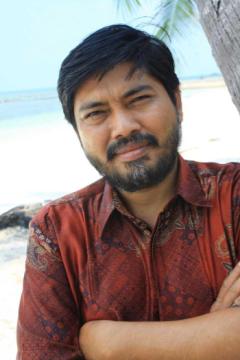Kalibaru: Once controversial, it'll be so eternally
One
might be considered that the development of Kalibaru terminals at the Port of
Tanjung Priok, Jakarta, should face no more controversy after the appointment
of Indonesia Port Corp (Pelindo) II as its developer by a presidential
decision. That's wrong, indeed. And, don’t
forget, the chief executive order was controversial when it was issued last
year.
The
newest one is that of Mitsui's assignment as Kalibaru terminal 1 operator of
which, unfortunately, it's me who arise such a privilege endorsement. Many parties predict that Kalibaru will spark
controversy in the time to come.
The
base line of my critism is that the Japanese company did not quote any
investment value for what it got.
While Pelindo
II had imprudently granted it without having one of the biggest sogo shosha[1]
in Japan proposed its value. Recent news reports said that the state-owne port operator and
Mitsui & Co. Ltd. is calculating the investment the latter must put in the
development of Kalibaru terminal 1 and the public will be informed about this
soon.
Lesson
learnt from the above mentioned is that transparency is something little bit
forgotten in Kalibaru development and that has been so from the beginning of
the project. It seem that the
multi trillions rupiah venture is run in secrecy. Therefore, the oversight committee set up by Pelindo II
recently with the aim to make the development transparent is to influence nothing
to the nature. Even, it’s predicted that it will more complicate the project since
the personnel involved have no background in the port business.
The question then is: why Kalibaru is controversial? But,
the readers must know firstly that this article is not in the position against
its development. You and me share a common ground, i.e., Kalibaru development
is necessary to keep Tanjung Priok able to compete those facilities overseas. But,
the way the project executed is interesting to observe and at this point this
piece is focusing on.
Everything is now on upon Kalibaru encircles on the lack
of government funding for infrastructure development. The fund is so badly
unsufficient; even for the project design the government asked Pelindo II to do
that. Additionally, in Kalibaru development it is unable to provide fund for
dredging, bridge construction and other basic facilities.
On the other side, the state-owned port operator is also
confronting internal cash problem. The company is actually profitable but the
revenue it bags must be transferred to the State as dividend, leaving only
small portion of it for business expansion. For Kalibaru project the management
of Pelindo II has to create new financial engineering in order to finance it.
Financial engineering the company implements, for
instance, is that of contracting concession from the State (almost a hundred
year) to the willing investors. It is a normal thing in business, so there is
no faulty element with this practice. And, Pelindo II indeed must do this
because it really has no money. Even, the money news reports said the company
had secured from Mandiri Bank, around Rp 11 trillions, was also engineered. In
other word, that money is still not yet in the firm’s pocket.
So, what is the matter with Pelindo II? It’s only about
the ethics. Is it ethical to contract the concession to other party when the
initial holder has not yet executed the tasks that are supposed to do? Of
course, you cannot do that. The concession is given to you so you should carry
it on.
If the state-owned port operator do that, it is much
better to grant the concession directly to Mitsui since the first time. Within
this context, that’s why we lamented the disposal of Kalibaru open bidding.
Direct appointment has made Kalibaru project walking on a slippery path.
[1] Means
general trading companies, a business entity unique to Japan trading a wide
range of products and materials. In addition to trading, they have historically
acted as investment banks and private equities.




Komentar
Posting Komentar